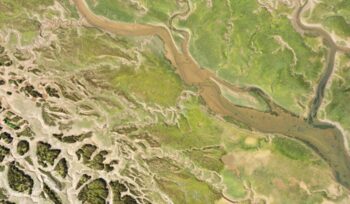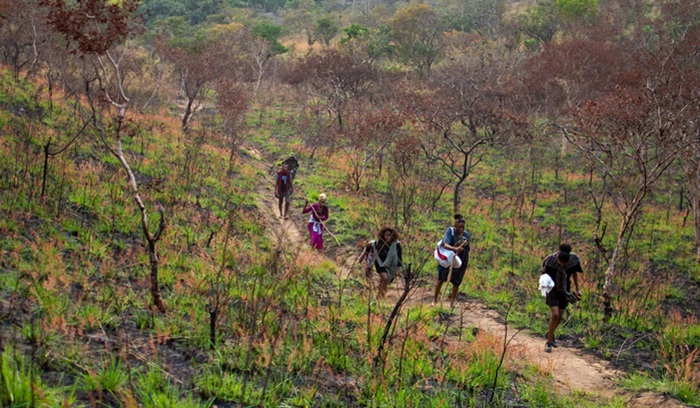Nations across the Congo Basin have launched a groundbreaking initiative to protect one of the world’s most vital ecosystems. The new “Payments for Environmental Services” (PES) program directly compensates local communities for their role in forest conservation. This financial mechanism, unveiled at the COP30 climate summit, is designed to encourage sustainable practices like agroforestry and reforestation. It represents a major shift in how conservation is funded and managed in the region.
This initiative acknowledges that the people living in the forest are its best guardians. By providing direct financial incentives, the program empowers farmers and villages to protect their natural heritage. This approach aligns economic development with environmental stewardship.
Direct Payments for Verified Action
The core innovation of this program is its direct payment model. Using mobile technology, funds are transferred securely to participants who verify their conservation activities. This system reduces bureaucracy and ensures that the financial benefits reach the people doing the actual work on the ground.
The program covers a wide range of activities, including deforestation-free agriculture and sustainable forest management. Hundreds of farmers have already signed contracts, and initial payments were successfully distributed this month. This early success proves the system’s efficiency and fairness. It offers a scalable model for conservation finance that can be replicated across the continent.
Scaling Up with Global Support
The initiative is supported by the Central African Forest Initiative (CAFI), which has committed over $100 million in additional funding to expand the program. This financial backing is crucial for scaling the project beyond its pilot phase. The goal is to reach thousands of communities across the Democratic Republic of Congo, the Republic of Congo, and Gabon.
The program builds on a decade of pilot projects that demonstrated the effectiveness of paying for performance. In the Democratic Republic of Congo alone, contracts already cover thousands of hectares of land. This massive investment signals a strong international commitment to preserving the Congo Basin. It is a recognition of the region’s critical role in global climate stability. You can read more about the structure of these payments from the Central African Forest Initiative (CAFI).
Protecting a Global Carbon Sink
The Congo Basin is the world’s second-largest tropical rainforest and a massive carbon sink. Protecting it is essential for mitigating global climate change. The region has faced intense pressure from logging and agricultural expansion, losing millions of hectares of forest in recent decades. This new payment scheme offers a viable economic alternative to destruction.
By monetizing the value of standing forests, the program changes the economic equation for local communities. It makes conservation a profitable endeavor rather than a cost. This shift is vital for slowing deforestation rates and preserving the region’s immense biodiversity. The World Wildlife Fund (WWF) is a key partner in implementing these conservation strategies.
A Model for Community-Led Conservation
This initiative is a powerful example of community-led conservation. It respects local knowledge and land rights, ensuring that conservation strategies are culturally appropriate. By involving communities directly in the monitoring and verification process, the program builds local capacity and ownership.
The success of this rollout offers hope for other high-forest, low-deforestation nations. It proves that international climate finance can be effectively channeled to the grassroots level. This model fosters a sense of shared responsibility for the planet’s health. The United Nations Capital Development Fund (UNCDF) supports similar financial mechanisms for green growth. Furthermore, the Center for International Forestry Research (CIFOR) provides case studies on the effectiveness of payment for ecosystem services.
Resources
- Central African Forest Initiative (CAFI) on Payments for Environmental Services
- World Wildlife Fund (WWF) on Congo Basin Conservation
- United Nations Capital Development Fund (UNCDF) on Green Growth Initiatives
- Center for International Forestry Research (CIFOR) on PES Case Studies
More Good News
-

Senegal launches all-electric bus network powered by renewable energy
Senegal has successfully launched a transformative Bus Rapid Transit system in Dakar, featuring a fleet of 121 fully electric buses. As the first network in Sub-Saharan Africa to operate entirely on renewable energy, the initiative utilizes local solar power to transport up to 300,000 passengers daily. By utilizing dedicated lanes, the clean energy fleet cuts cross-city commute times in half while preventing nearly 60,000 tons of carbon dioxide emissions annually. This monumental project dramatically improves urban air quality and establishes Senegal as a pioneering leader in sustainable, green public infrastructure.
-

Yangtze River showing remarkable ecological recovery following fishing ban
China’s Yangtze River is experiencing a remarkable ecological revival five years into a sweeping ten-year commercial fishing ban. Recent surveys reveal significant increases in overall fish biomass and the heartening return of critically endangered species in the world’s fifth largest river. Furthermore, thousands of former commercial fishers have been successfully transitioned into new roles as official river guardians. This massive conservation effort offers a hopeful, replicable model for global freshwater restoration.
-

Rob Jetten becomes The Netherland’s first openly gay prime minister
In a historic victory for representation and progressive politics, Rob Jetten has been sworn in as the first openly gay Prime Minister of the Netherlands. At 38 years old, the centrist Democrats 66 leader is also the youngest head of government in Dutch history. Jetten successfully formed a minority coalition government following a tense election that defeated far-right populist opponents. His platform prioritizes climate investment, economic fairness, and strong international collaboration. Jetten’s premiership powerfully reaffirms the Netherlands’ global legacy as a pioneer of LGBTQ+ equality and inclusive, cooperative democratic leadership.
-

Millions of New York City workers gain additional time off through new law
Millions of workers in New York City are benefiting from a major expansion of the Protected Time Off Law, which officially took effect in late February 2026. The progressive legislation grants employees an additional 32 hours of unpaid, protected leave that is available immediately upon hire or at the start of the calendar year. This ensures workers do not have to wait to accrue hours before addressing sudden medical emergencies or family crises. The law also vastly expands permitted uses to include mental health care, public disaster recovery, and caring for disabled loved ones.
-

Malaysia bans electronic waste imports to protect the environment and public health
In a monumental victory for public health and environmental justice, Malaysia has enacted an immediate and absolute ban on the importation of electronic waste. By removing regulatory loopholes and launching a strict enforcement campaign, the nation is successfully preventing toxic heavy metals from polluting its soil and waterways. Authorities have already intercepted hundreds of thousands of kilograms of illegal e-waste at major ports, vowing to return the hazardous materials to their countries of origin. This decisive action establishes Malaysia as a leading force in Southeast Asia’s growing movement to reject global waste and prioritize ecological sustainability.
